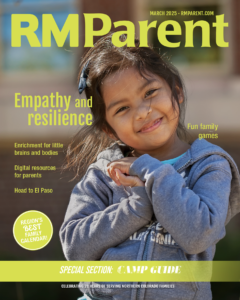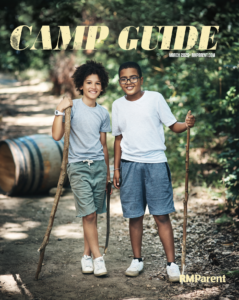A tool to overcome tense moments and conflicts
A big bonus of being a mom is getting to laugh and smile at the silly things our kids say and do. Whether it’s dressing up the family dog, enacting make-believe stories, or doing a jig in the living room, we all have those goofy, carefree moments that light up our days. Relishing these times, even when they require us to stop in the middle of an important task, is key to keeping spirits light and cherishing younger childhood for what it is—a mere blip in a lifetime.
Laughter is the literal lube that greases the gears of happiness. When we laugh, we inhibit the release of cortisol, our stress hormone. So find those moments with your kids and laugh!
Encourage kids to laugh at small problems
Everyday life continually throws us opportunities to get upset. We can’t find a pair of shoes, a favorite toy goes missing, or we learn about a homework assignment that’s due today on the way to school. We have a choice to react with anger or respond with acceptance or humor. How we respond teaches our kids whether or not to sweat the small stuff.
Practice making jokes about small mishaps. If your child knocks over a glass of juice, the first thing you might want to do is scold. Instead, say: “Oh phew. The counter was really thirsty. Thanks for giving it a drink. Now let’s clean it up.” Or, when the hamster cage is getting rank as you wait for your daughter to clean it, put a sticky note on it that says, “Dear Ellie, please clean my cage. It is really getting stinky in here and I’d love some fresh fluff to play in. Love, Sunshine.” Or, if your son is ignoring you, use a funny voice or sing your request. Tone matters. If he expects you to interrupt his play with a harsh, demanding tone you will catch him off guard and it might motivate positive action.
Use humor to solve small disputes
Humor can disrupt an argument and help reset a situation. By making a benign joke you allow everyone to step back and see the situation for what it is, and maybe even laugh at it. It doesn’t fix the problem—you still have to use conflict resolution skills—but it’s a speedbump, if you will. Once the tension breaks, you can encourage a more productive conversation.
Using humor in a tense discussion is like turning down the lights on it. You no longer have to look at it straight on, rather, you allow people to give a problem a sidelong glance before addressing it. Of course, you must be very careful to point humor at the circumstance, not at a person. By saying, “Look, Jack’s clothes jumped out of his basket again! Let’s shoo them back into place!” you shed light on the problem and also send the message it’s not the end of the world, just something that needs fixing.
Sarcasm isn’t humor
Be aware of attempts by your kids to use humor to hurt. A great example is sarcasm. It’s purpose is to put someone down or express anger sideways and is often a one-way joke. The same goes for saying, “I was only joking,” to dismiss hurtful words or behavior. Help your kids learn the difference by addressing the misuse of humor immediately. After all, the purpose of humor is to build, not destroy.
With laughter, we teach our kids to look for the joy in life, and we provide a tool to overcome small conflicts and ease tense moments. Making it a habit to laugh together as a family improves our overall moods and helps us walk into our days feeling open and light, letting us attract back exactly that from others. It establishes a family code that life shouldn’t be taken too seriously, that we all make mistakes, and that life is a gift—one that’s meant to be enjoyed.

Lynn U Nichols is a longtime Fort Collins-based freelance writer who specializes in health and wellness content. She raised two boys while writing for RM Parent Magazine, gratefully applying the wisdom she gleaned from interviews with child experts along the way. Learn more at healthwritecommunications.com.




